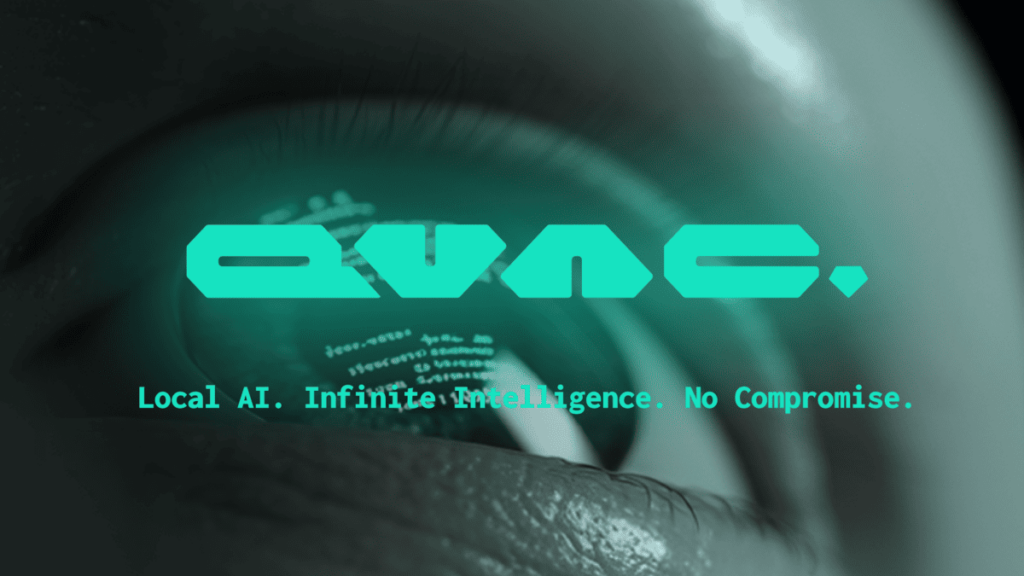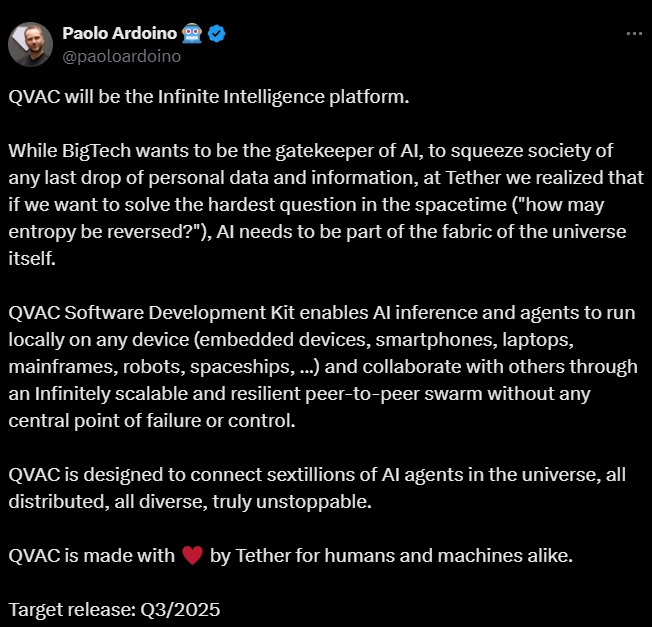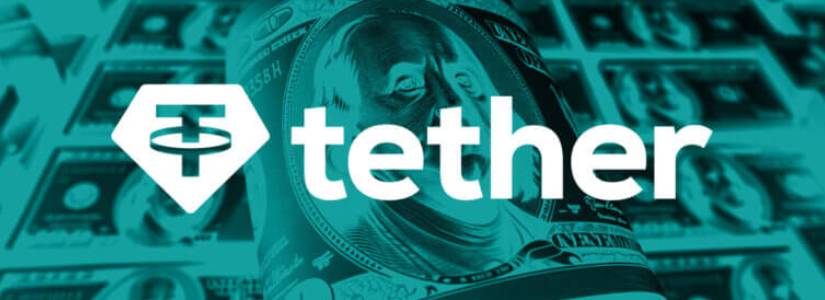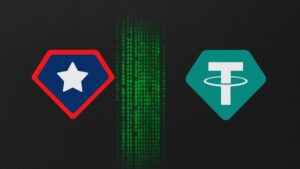TL;DR
- Tether introduced QVAC, a platform that runs AI applications locally on user devices, without relying on servers or cloud infrastructure.
- QVAC’s modular architecture enables peer-to-peer connections and protects sensitive data by removing intermediaries from the process.
- It will integrate native payments in Bitcoin and USDt through WDK, allowing AI agents to handle transactions without third-party platforms.
Tether announced on Tuesday the launch of QVAC, a new development platform designed to run artificial intelligence applications directly on users’ devices, with no need to connect to centralized servers or cloud services. The project aims to offer a decentralized alternative for deploying and operating AI agents, prioritizing privacy, autonomy, and full ownership of personal data.
QVAC’s architecture allows AI models to run locally on phones, laptops, mainframes, and even brain-computer interfaces. This eliminates intermediaries and reduces the risk of leaks or unauthorized access to sensitive information. Its modular system also makes it easier for developers to build scalable applications from small, composable components that can communicate directly through peer-to-peer connections, without routing data through external servers.
Native Payments with Bitcoin and USDt
Another standout feature is the integration of native payments in Bitcoin and USDt through WDK, a Tether tool that allows AI agents to carry out autonomous transactions. This unlocks the potential for applications to operate independently, with no need for third-party platforms to process payments or validate operations.
Among the first QVAC-based applications are QVAC/Translate and QVAC/Health. The former allows users to transcribe and translate text, documents, images, and audio directly on their device, with no data sent to the cloud. The latter works as a health tracker that keeps all medical records stored locally, ensuring no external company can access that information.
Tether Aims to Put Control of Technology Back in Users’ Hands
Tether also plans to release an open-source software development kit in the coming months, making it easier for programmers and companies to build new AI agents compatible with the platform. The goal is to provide a tool that enables artificial intelligence to run in any environment, whether online or offline.
According to Paolo Ardoino, Tether’s CEO, this initiative seeks to put control of technology back in the hands of users by eliminating the dependency on large corporations that manage access to AI through servers and API keys













